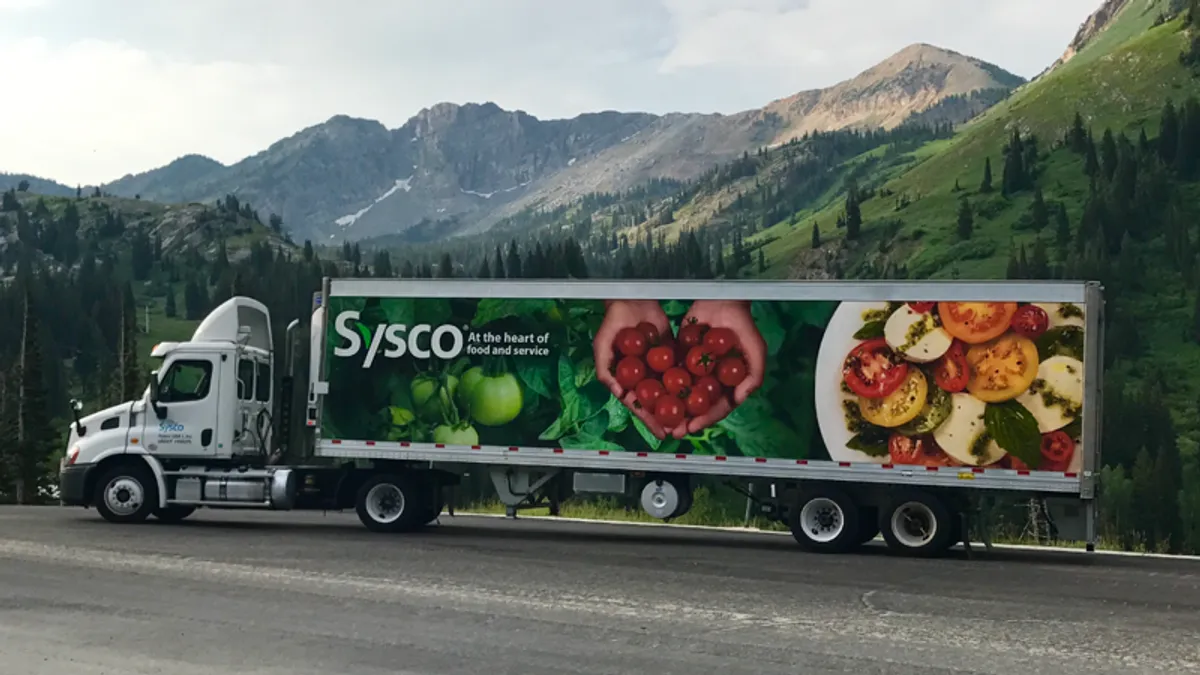Dive Brief:
- Sysco's suppliers are having a hard time keeping pace with the level of orders coming from the food distributor, CEO Kevin Hourican said on the company's earnings call earlier this week.
- Sysco's merchant teams are working with current suppliers while also sourcing alternative supplier companies. Meanwhile, its sales teams are working to figure out what alternative products can be supplied to customers, Hourican said.
- "I'm confident that Sysco is performing better than the industry at large in delivering what we call customer fill rate, but we are performing below our historical performance standards," he said.
Dive Insight:
Supplier delays have been an issue across many industries for months at this point and is a concern that just about everyone has been dealing with. The most recent figures from the Institute for Supply Management's manufacturing report show these delays are making it hard for companies to build up inventories.
One of the industries that ISM tracks is food and beverage products, which was among the industries that reported slowing supplier deliveries and higher order numbers in the latest ISM survey.
"Raw materials lead times continued to be near record highs," ISM Manufacturing Business Survey Committee Chair Timothy Fiore said on a press call earlier this month.
Suppliers have been dealing with labor shortages and transportation issues, Fiore said. But many manufacturers are experiencing a surge in demand at the same time their suppliers are having trouble delivering.
"Customer demand still high; pushing plant to max production rates," one respondent in the food, beverage and tobacco products industry told ISM in its latest survey.
Sysco said it has one advantage, though: its scale.
"We have significant scale and purchasing, which is an asset," Hourican said. "Which our suppliers will be hearing more about as we leveraged the power of buying as one Sysco."
Hourican specifically noted difficulties in procurement in the pork and poultry industries. Some of the company's suppliers are working to increase production, he said.
Tyson Foods is one food supplier that has spoken about efforts to increase production capacity as recently as this week.
"We're taking aggressive actions to add new capacity to meet demand, adjust our product mix by plant, and match our portfolio more closely with customer and consumer needs," Tyson CEO Donnie King said this week on the company's earnings call.
Despite these difficulties, Sysco doesn't plan to put any order minimums in place for its customers.
"We remain the only national distributor with no order minimums for our customers at a time when competitors have been increasing their order minimums and select competitors are releasing customers who can't get those raised minimums," Hourican said.
All of these sourcing issues are starting to be felt at the consumer level as well. A Gallup survey conducted in mid-July found that 60% of respondents had been unable to get a product due to shortages in the last two months
This story was first published in our weekly newsletter, Supply Chain Dive: Procurement.Sign up here.















